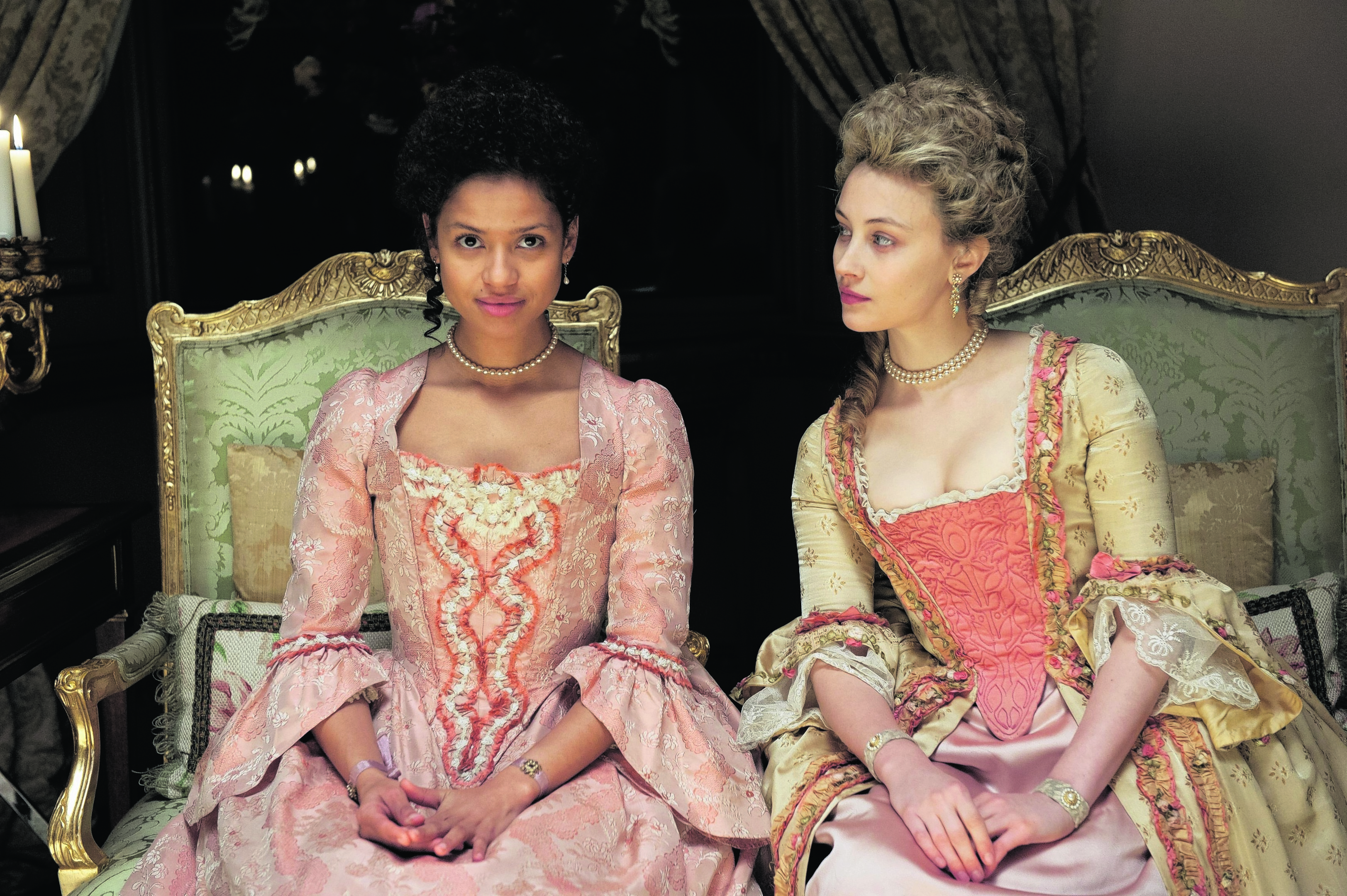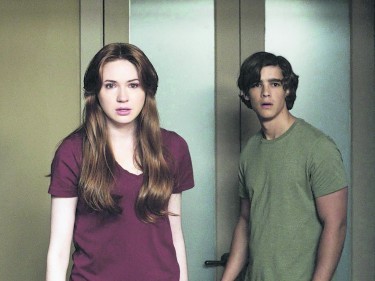We take a look at this week’s cinema releases
BELLE (12A)
Beauty is in the eye of the beholder, but when that beauty defies the social mores of a prejudiced era, it must be cherished in secret.
Belle is the enchanting dramatisation of a true story of fortitude across racial and class divides at a time when pompous men of privilege were vociferously debating the end of slavery in England.
The high-profile case at the centre of the debate concerned the crew of a ship called the Zong, who had thrown dozens of slaves overboard because they claimed they did not have enough supplies for the duration of the voyage.
When the ship reached port, the Zong’s Liverpool-based owners demanded compensation for the lost slaves, but insurers refused to honour the claim.
The subsequent trial posed uncomfortable questions about the monetary value of human life.
Inspired by an 18th-century painting commissioned by William Murray, who was then lord chief justice of England and Wales, Amma Asante’s handsome period piece illuminates the debate and some of the characters, whose lives intersected at this historical crossroads.
Captain Sir John Lindsay (Matthew Goode) brings his illegitimate, mixed-race daughter, Dido (Lauren Julien-Box), to England and entrusts the child to his aristocratic uncle Lord Mansfield (Tom Wilkinson) while he returns to sea.
Lord Mansfield’s wife (Emily Watson) is opposed to the plan, but he permits Dido to stay, allowing his great-niece to become a constant companion to her cousin, Elizabeth (Cara Jenkins).
The girls blossom and Lady Elizabeth (now played by Sarah Gadon) prepares to seek a wealthy husband.
“Elizabeth must secure her bread and butter,” Lord Mansfield reminds his wife.
Dido (now played by Gugu Mbatha-Raw) is afforded certain privileges by her lineage, but she must remain behind closed doors at important social gatherings.
Oliver Ashford (James Norton), the handsome offspring of Lord and Lady Ashford (Alex Jennings, Miranda Richardson), is a potential love match for Elizabeth, but he is more interested in Dido.
However, Dido’s head is turned by idealistic lawyer John Davinier (Sam Reid), who is heavily involved in the Zong case and opens her eyes to the barbarism of slavery.
Elegantly scripted by Misan Sagay, Belle is a beautifully crafted companion piece to 12 Years a Slave that traverses a moral maze through British eyes and reminds us that we have blood on our hands, too.
The ensemble cast deliver excellent performances, particularly Mbatha-Raw, who possesses beauty and vulnerability on camera.
She catalyses smouldering screen chemistry with Reid, and Wilkinson brings pomp and circumstance to his pivotal role as a man with the power to chip away at the foundations of the legal firmament.
Dramatic momentum builds steadily to Lord Mansfield’s deliberation on the Zong case, watched intently by Dido and Davinier.
Like them, we’re spellbound by his ruling.
OCULUS (15)
Oculus opens with 13-year-old Kaylie (Annalise Basso) and her 10-year-old brother, Tim (Garrett Ryan), cowering in a bedroom.
They open the door and see their father, Alan (Rory Cochrane), prowling in a homicidal daze, having just shot his wife, Marie (Katee Sackhoff).
Sensing an opportunity to escape, the youngsters run for the front door.
In the present day, 21-year-old Tim (now played by Brenton Thwaites) is released from St Aidan’s Mental Facility, having come to terms with his horrific childhood.
“It’s important you connect with your sister,” Dr Graham (Miguel Sandoval) tells Tim. “It’s more important you protect your recovery.”
Tim is released into the care of sibling Kaylie (now played by Inverness actress Karen Gillan), who works in an auction house.
She is convinced that a mirror drove their old man to murder and she has acquired the supposedly possessed looking glass with the intention of smashing it to smithereens at their childhood home.
Kaylie intends to document the destruction on video cameras placed around the homestead.
“We were kids. We made up a sick story to hide the fact our father was a killer,” rages Tim, who is reluctant to delve into fractured memories of the past.
Oculus doesn’t play fair, creating nightmarish dreams within dreams within dreams that test our resolve.
Pacing is sluggish. From the moment the siblings venture back into the house that brought them anguish, we know one or both of them will leave in a coroner’s bag.
Gillan and Thwaites don’t have sufficient screen time to forge credible onscreen chemistry, so it’s hard to invest our emotions in their survival.
A blood-soaked finale intentionally leaves the door ajar for a sequel, which should never see the light of day.

